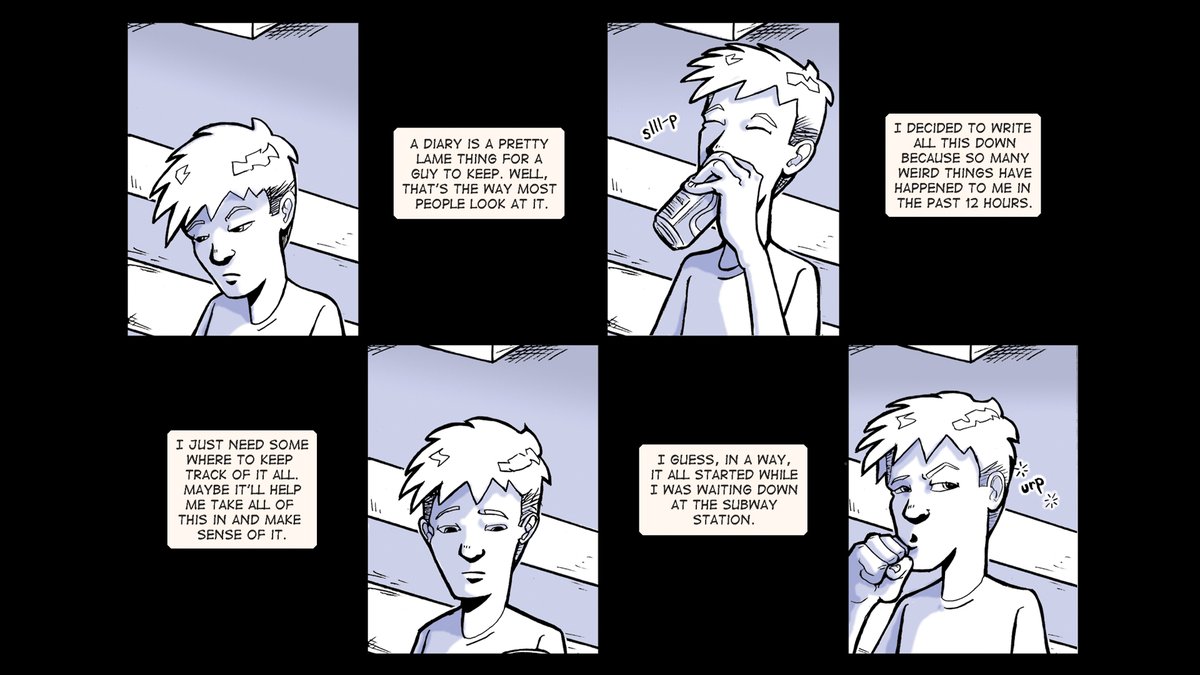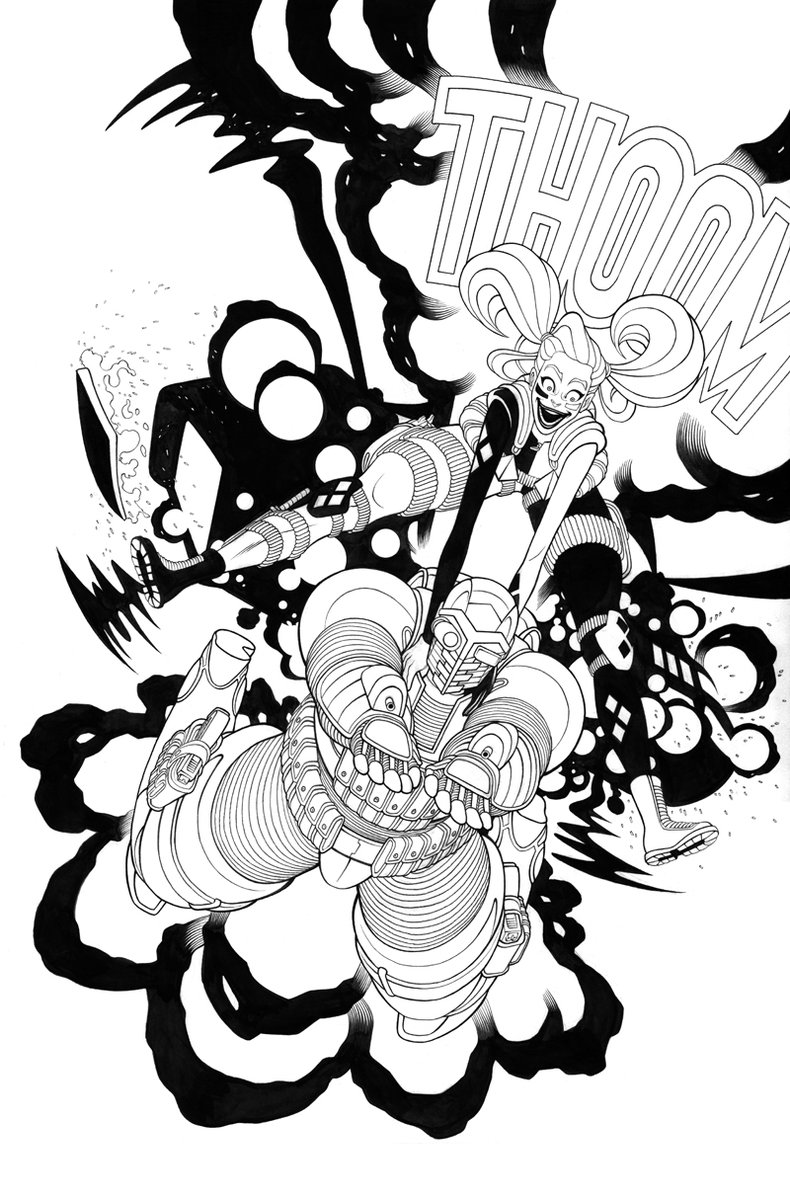
A new #ComicsSchool video is up!
Talking about juggling freelance projects with a day job and the amount of time it took for me to get momentum as a comic writer. These creative careers are a marathon, not a sprint.
Watch and share:
Talking about juggling freelance projects with a day job and the amount of time it took for me to get momentum as a comic writer. These creative careers are a marathon, not a sprint.
Watch and share:
Crucial parts of my career, whether I realized it at the time or not, came about thanks to amazing people around me.
People like @OmarDogan1976 @madnug @GailSimone @erikmona @scottmccloud @BillRosemann
Friends and mentors who taught me a lot and encouraged me at key moments.
People like @OmarDogan1976 @madnug @GailSimone @erikmona @scottmccloud @BillRosemann
Friends and mentors who taught me a lot and encouraged me at key moments.
If my comic 'career' started with making a comic and releasing it, I've been doing this for literally 20 years.
I was working on pages for my webcomic Makeshift Miracle and hand-coding parts of the website in August 2001.

I was working on pages for my webcomic Makeshift Miracle and hand-coding parts of the website in August 2001.


20 years of making comics, freelance art, project managing, teaching, writing, and trying to figure it all out...
Highs and lows, successes and setbacks aplenty.
All you can do is-
Make stuff
Finish it
Release it
Learn from it
Repeat
and see what happens.
Highs and lows, successes and setbacks aplenty.
All you can do is-
Make stuff
Finish it
Release it
Learn from it
Repeat
and see what happens.
Here's an important point-
Generating your own momentum/work is crucial early on as you build up experience and a portfolio.
No one is going to pay you to do a thing until you show that you can do it at a level that's worth paying for.
Generating your own momentum/work is crucial early on as you build up experience and a portfolio.
No one is going to pay you to do a thing until you show that you can do it at a level that's worth paying for.
Getting motivated to start and carrying through that momentum into finishing is tough!
When no one is watching and no one seems to care, it can be difficult to carve out that time and see it through.
When no one is watching and no one seems to care, it can be difficult to carve out that time and see it through.
If you do start getting work, it's easier to keep momentum. There are expectations and deadlines, budgets and support systems to ensure stuff gets done.
Work-For-Hire projects have their own challenges, of course, but structure helps a lot.
Self-generated work is harder.
Work-For-Hire projects have their own challenges, of course, but structure helps a lot.
Self-generated work is harder.
The timeline I go through in the video is comics and writing focused, so it doesn't include animation and illustration freelance work, dozens of projects I managed and conventions I worked at with the Udon crew, or pitches and proposals that crashed and burned.
It's been a lot.
It's been a lot.
• • •
Missing some Tweet in this thread? You can try to
force a refresh
















